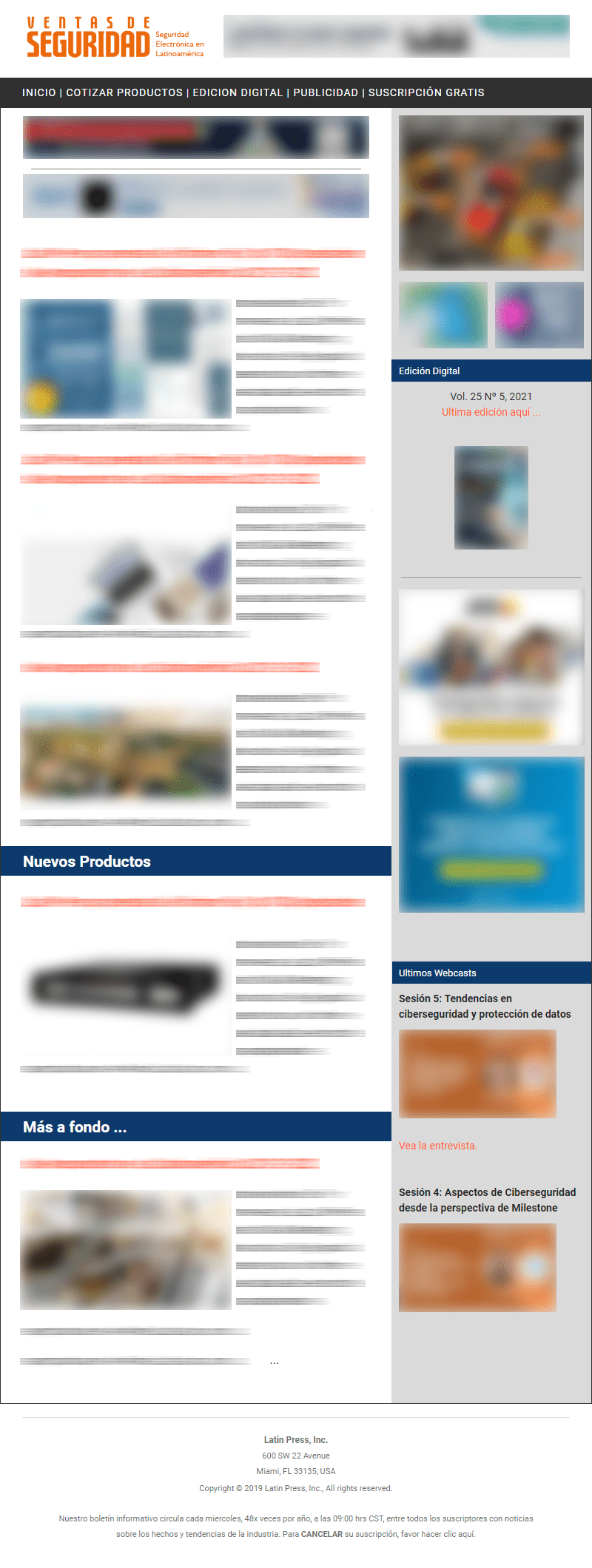 In this second installment the author talks about the importance of a code of ethics within security companies.
In this second installment the author talks about the importance of a code of ethics within security companies.
By: Héctor R. Torres, PhD, CPP, CFE, CHS*
A fraternal greeting from Puerto Rico to all colleagues and readers of this column! It is a pleasure to share again with you. In this edition we will continue to talk about ethics. As I noted in the previous column, we have seen in our respective countries the proliferation of multiple security businesses offering everything from security guard services to electronic security products and services.
I stressed that although there is a need to compete to win in the security market, we cannot be tempted to compete unfairly and be unethical. Therefore, ethics in our business must become the north to ensure healthy competition and ethical behavior in business conduct. To achieve this goal, many companies have adopted a code of ethics that establishes the general scheme and rules of ethical behavior in business by their employees.
What is a code of ethics?
Before we get into the meaning of a code of ethics, we must first define its basic terms. Ethics, as we noted in the previous column, is based on moral principles that establish what is good, bad, or permissible with respect to an action or decision.
A code can be defined as the set of signs of determined value within an established system. Therefore, a code of ethics is the set of rules that regulate conduct in business by employees of a company or organization. It is important to emphasize that although ethics does not impose legal punishment, a code of ethics establishes an internal regulation of the company or organization that requires mandatory compliance.
How is a code of ethics developed?
The code of ethics in a company should be developed as an integral part of an organization's culture, which determines the employers, values, symbols, language and practices of the company and reflects the way its directors, managers or administrators conduct it, as well as shows how employees perform in it.
The code of ethics is the document that includes all the elements that make up the organizational culture (mentioned above) and that allows the organization to establish the guidelines of conduct that must be respected both by managers and / or owners, as well as by employees during their daily work. At the same time, a code of ethics allows organizations to incorporate and implement, through statements of principles and values, the moral and ethical foundations of a universal character within the daily life of an organization.
Codes of ethics can originate and develop for various reasons such as local laws, international standards, professional standards or by the executive guidelines of an organization. Here are some of the most important reasons to develop a code of ethics. No matter the reason for its development, a code of ethics requires the absolute support of the highest authorities in an organization so that it can be successfully implemented.
Today, companies, international organizations and even governments have developed codes of ethics, because it guarantees them productivity, sustainability and response to legal commitments and international treaties ratified by nations that establish ethical commitments that transcend legal regulations.
The benefits of the code of ethics
Codes of ethics allow you to determine the patterns and expectations that can be foreseeable in a company. Despite this, there is still a great deal of debate about the importance of having a code. Examining the potential benefits of implementing a code of ethics we find that these occur both internally and externally. Here are some benefits that companies have when implementing a code of ethics:
Internal Benefits
1. The code of ethics frames the actions of employees and guides the management of the organization to act impartially. The codes of ethics not only set the corporate expectations of performance of employees, but also make all the participants of the company are ordered under the same principles.
2. The code of ethics establishes the guidelines of conduct and criteria by which all members of the organization will be governed when carrying out actions or making decisions in the context of business.
3. The code of ethics creates loyalty and cooperation of employees towards the company. It also creates an environment of workplace safety that promotes the loyalty of the members of the organization to the best and noblest interests of the company.
4. A code of ethics implemented and supported by the management of the company motivates employees to participate in this project.
5. A code of ethics and the values contained therein ensure improved efficiency, reducing the need for direct oversight of employee conduct.
6. Compliance with a code of ethics protects the economic interests of the company by establishing rules to safeguard tangible and intangible assets.
External benefits
1. The application of the code prevents or minimizes situations of risk for the company, since the issues are dealt with internally before they are handled legally.
2. Companies that implement a code of ethics generate greater confidence and certainty to their shareholders, who expect that their investment will generate the profitability offered in compliance with established ethical principles.
3. A code of ethics is an excellent public relations platform since it attracts professionals who want to work in the company for the fact of making public the values and organizational culture of the company.
4. The existence of a practical and reasonable, well-founded and coherent code of ethics is a key element of legitimacy and allows to gain the respect and loyalty of customers, suppliers and communities that do business with the company.
5. A code of ethics establishes and projects a concrete and sincere image regarding the strong commitment with which a company corporately manages its business.
6. A code of ethics discourages corruption in competing companies. It allows the company to face situations or actions in which the competition acts outside the parameters of business ethics.
Conclusion
It is worth reiterating the fact that the ultimate value of a code of ethics lies in its implementation by the management of a company to ensure that it does not fall into the temptation of falling into unethical behavior, and thus lose its professional credibility.
I invite you to continue to share your ideas and concerns from the world of security management.
A hug and see you next time!!
* If you wish you can write to the author of this article at the email [email protected]
























Leave your comment